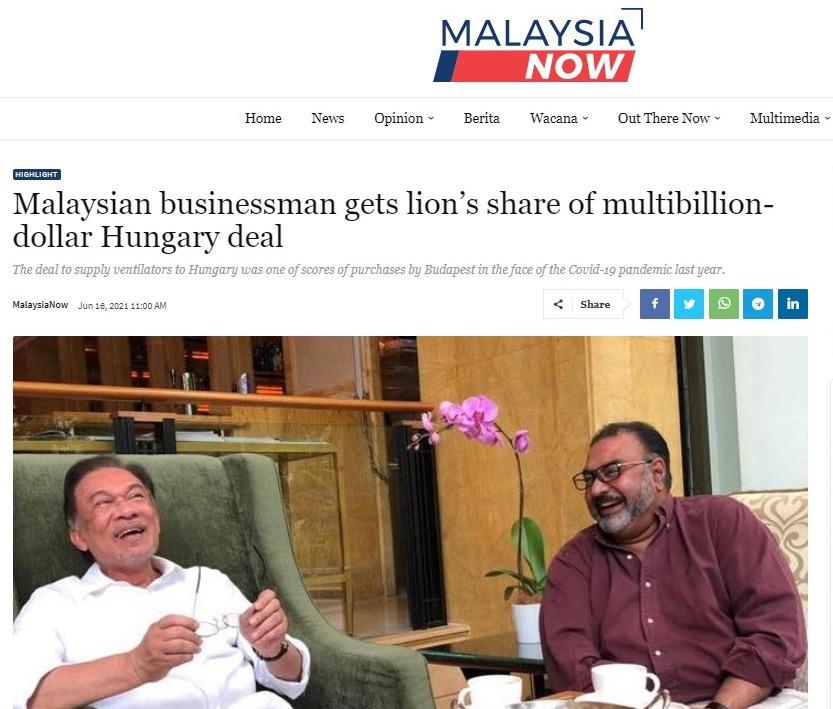MalaysiaNow target of fake complaints over controversial mega-contract involving Msian businessman
This is said to be a common tactic to silence critics and journalists who carry damning reports which are difficult to counter or rebut.
Just In
Anonymous individuals using fake identities have been abusing a US copyright law with global reach to force the removal of online content and news reports for various reasons.
The ingenius method came to MalaysiaNow’s attention after complaints were made against a news article carried earlier this year about a multi-billion dollar medical equipment deal awarded by the Hungarian government to controversial Malaysian businessman Vinod Sekhar.
Invoking the Digital Millennium Copyright Act (DMCA), a US law for the implementation of intellectual property laws on the internet, a complainant would file a report to claim that certain online content had committed plagiarism or infringed copyright.
Proof of this is then shown by replicating a page of the news report under an unknown news portal, with the date of publication backdated to before the original article.
A person familiar with such false complaints said the method is a common tactic to silence critics and journalists who carry damning reports which are difficult to counter or rebut.
“Among the abuses of DMCA around the world is take-down notices issued under false claims of copyright, where a fake page and a fake identity of a complainant is created.
“When such a complaint is filed, a service provider and/or server host must inform its client, who will then have to remove the said content or file a rebuttal, or risk a suspension of the website,” he said.
In the complaint lodged against MalaysiaNow, it is alleged that the report titled “Malaysian businessman gets lion’s share of multibillion-dollar Hungary deal” was wholly copied from another website with the URL allmain.news.
The complainant identified himself as “Muhammad Zuhaili”, with an address in Jerteh, Terengganu, as well as a mobile number.
A check revealed that the number does not belong to this person, while the address is non-existant.
The website allmain.news also appears suspicious, and apparently originates from Russia.
MalaysiaNow has responded to the complaint, which it believes is among several online attempts by unidentified parties to attack the portal.
The report first published on June 16, 2021 reveals a whopping RM2.5 billion worth of contracts from Hungary secured by Vinod, a businessman who is close to politicians in Malaysia.
The contracts raised eyebrows not only for their sheer volume, but also on the back of revelations that the medical equipment was not needed and had resulted in an oversupply that led to Hungary disposing of many ventilators.
In the report, MalaysiaNow also interviewed opposition politicians in Hungary who said the deals were opaque and overpriced, and demanded an investigation into the purchases.
Hungary’s medical equipment purchases last year, under the pretext of battling Covid-19, have been described by a investigative journalist group there as the worst deal in the European Union.
In August, the Hungarian chapter of global anti-corruption watchdog Transparency International urged Budapest to release specific details related to Vinod’s portion of the contracts worth more than half a billion dollars, awarded to his company GR Technologies.
The group, saying questions exist on transparency surrounding the contract, has also filed a freedom of information request with the Hungarian foreign ministry, which signed the contract.
The details sought include who was behind the selection of GR Technologies, details on the company’s credentials, invoices and proof of payments.
Subscribe to our newsletter
To be updated with all the latest news and analyses daily.
